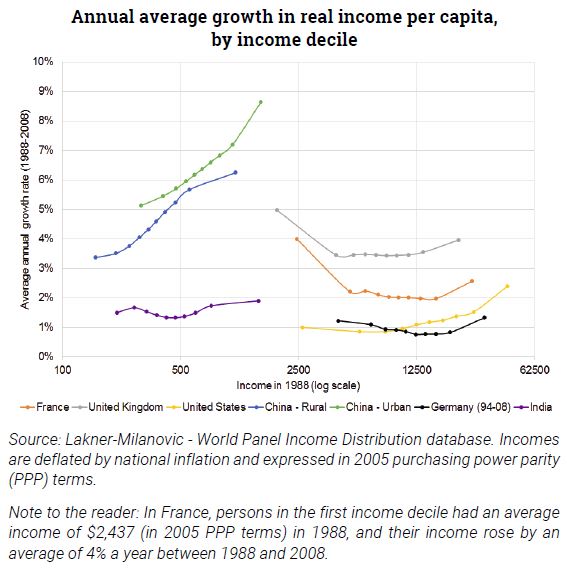Trésor-Eco
Trésor-Economics No. 210 - Globalisation, growth and inequality: implications for economic policy
- Trade globalisation has accelerated since the early 1980s, generating substantial economic gains globally. However, these gains have not been distributed evenly either across or within countries. Some emerging countries have notably benefited from globalisation and have narrowed their development gap with developed countries, reducing inequality globally.
- In the developed countries, high-income groups seem to have benefited more than the middle-to-lower-income classes from trade openness, and this has contributed to the increase in within-country inequality. Trade openness can even create losers - at least in the short to medium run - by destroying some categories of jobs, while gradually adding other, more productive jobs in other sectors.
- Nevertheless, the main driver of the increase in inequality in the developed countries appears to be technological progress. Automation has also powerfully stimulated world growth during the period while destroying many low- or middle-skill jobs.
Without giving up gains from trade and technological progress, our economies must learn how to better cushion trade-related and technological changes. This analysis leads to formulating recommendations for economic policy, particularly at the national level, aimed at improving workforce training and job mobility. - A better regulated globalisation and fairer international competition would also contribute to this goal. At the level of the European Union (EU), further economic integration should go hand in hand with a greater convergence of social standards, notably through establishing social key principles and rights. In its relations with the rest of the world, the EU must strengthen multilateral cooperation and seek to obtain greater reciprocity from trade partners that are less open than the Union. Such cooperation should be increased most notably as regards taxation so as to avoid unfair competition while preserving the right of every State to choose the level of redistribution compatible with its social preferences.
